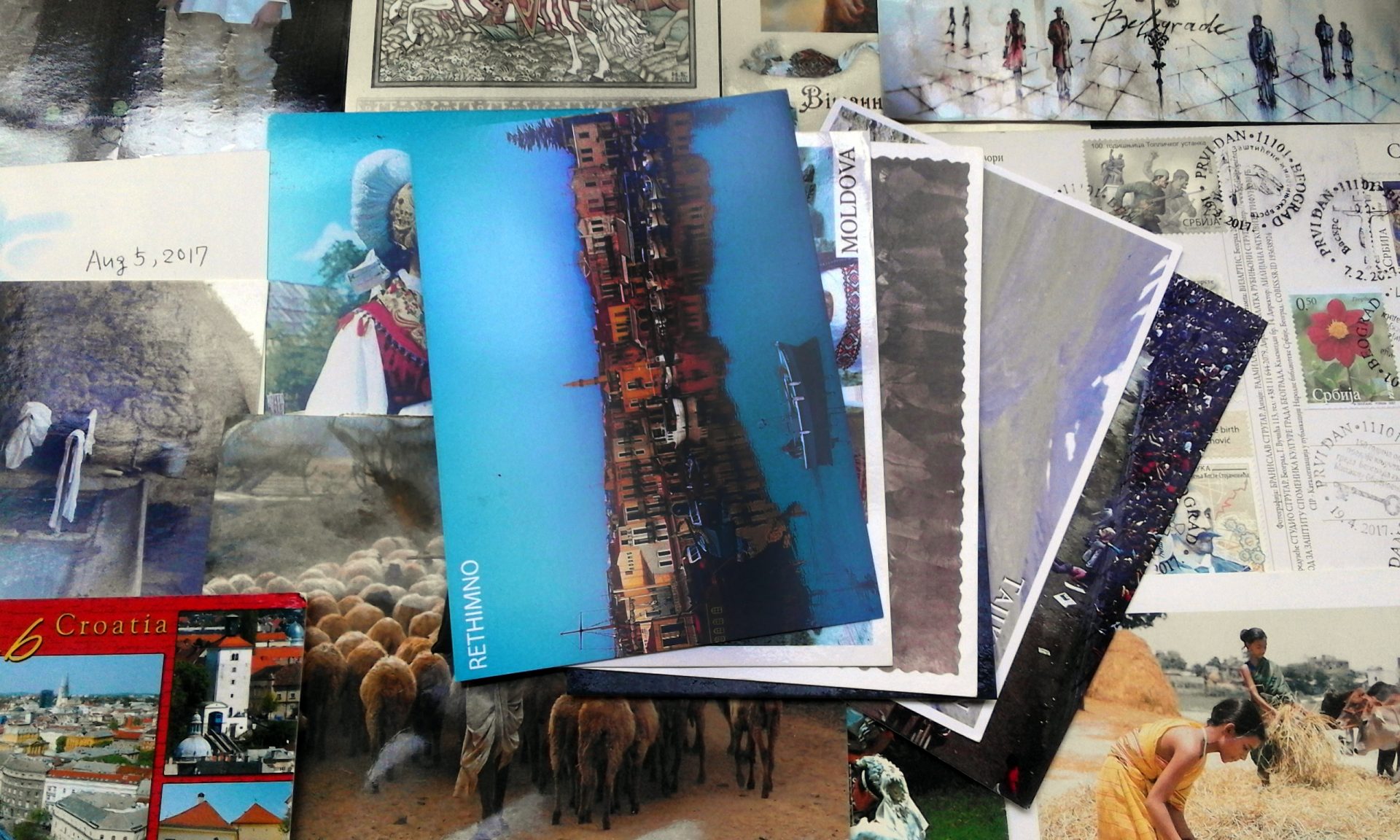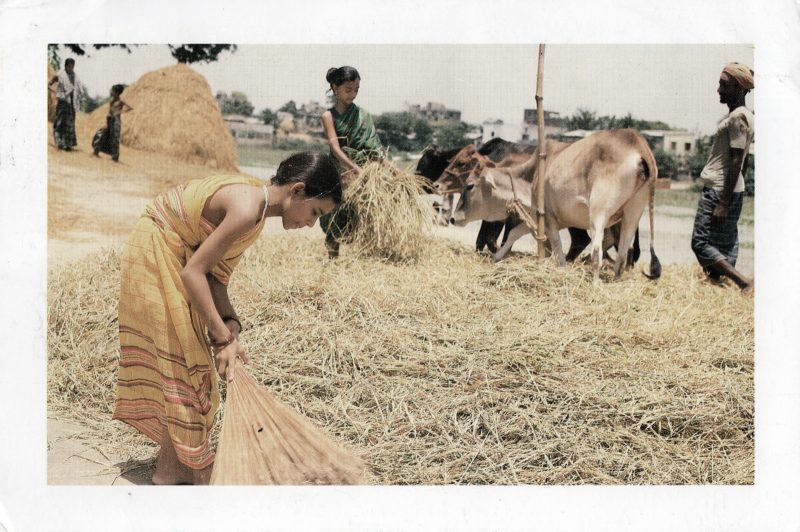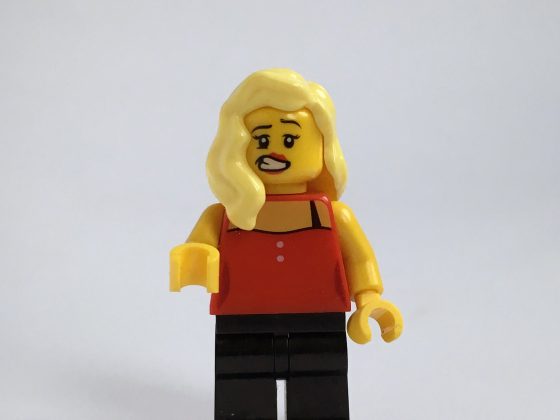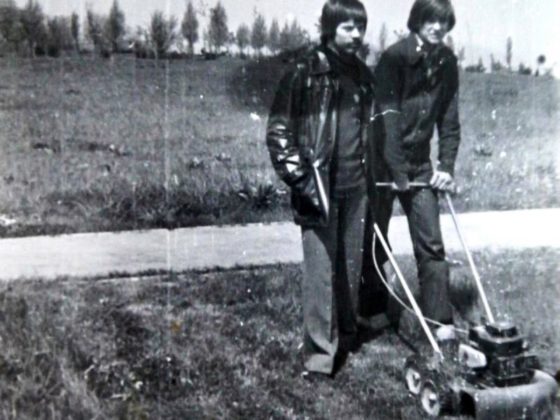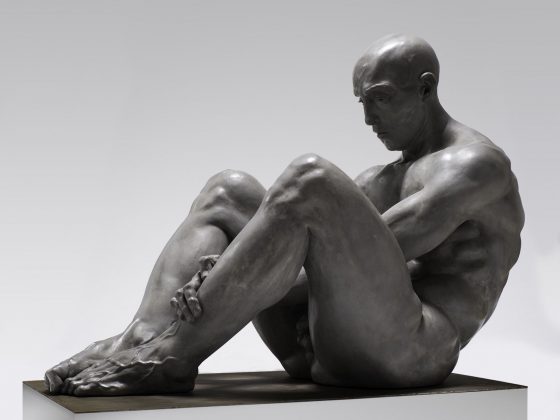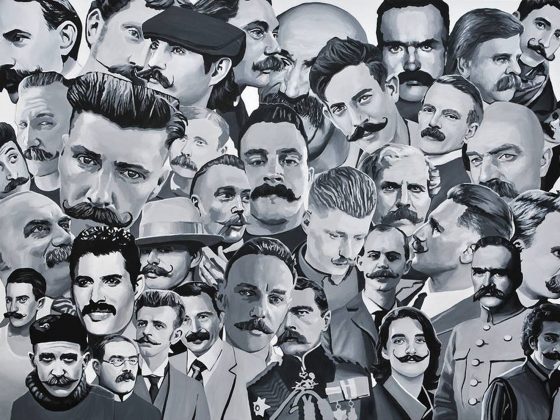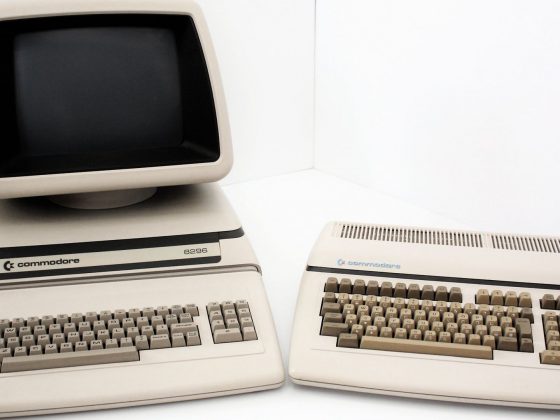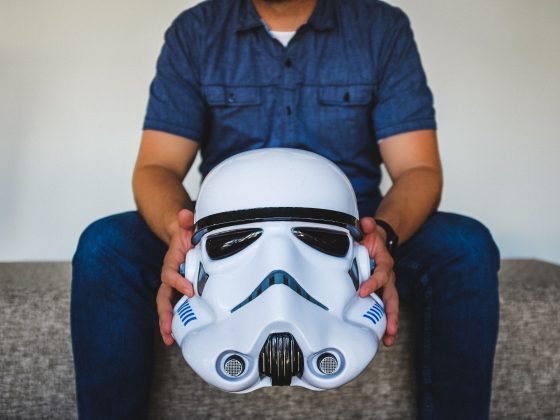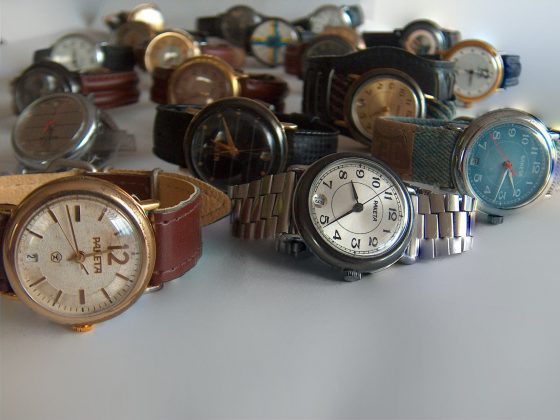“Everyone who has ever received a postcard knows that feeling and the joy that postcard can bring. Those cards are special because they were chosen for me and written for me. They contain a distinctive personal touch of the sender and therefore have emotional value” — Jovana tells the story of her passion for postcards and shares her collecting experiences.
Tell us about yourself. Where are you from? When did you get into collecting?
J: I’m Jovana, and I live in Belgrade. I don’t really want to consider myself a serious deltiologist, but I’ve started collecting post stamps and postcards when I was 8 years old. I’m 26 now, so I guess that’s a rather long experience for a postcard collector. Deltiology is a term which is used to designate the study and collection of postcards, but I prefer using simple ‘’postcard collector’’ or “postcard devotee” for myself.
How did your collecting passion start?
J: I see postcard collecting as a hobby and resting activity, which brings me a lot of joy and delight. I guess that’s how it all started. As a child, I really enjoyed receiving postcards and letters. At first, those were mostly New Year, Christmas and birthday cards from family and close friends, or postcards from their summer and winter holiday trips. However, what attracted me to postcards is not just collecting and storing, but also writing postcards by myself and sending them to someone. Having a father who is a very devoted coin collector and watching his numismatic collection also helped to develop my affection toward collecting from early childhood, but instead of numismatics, I’ve chosen something that’s closer to my personality: postcards.
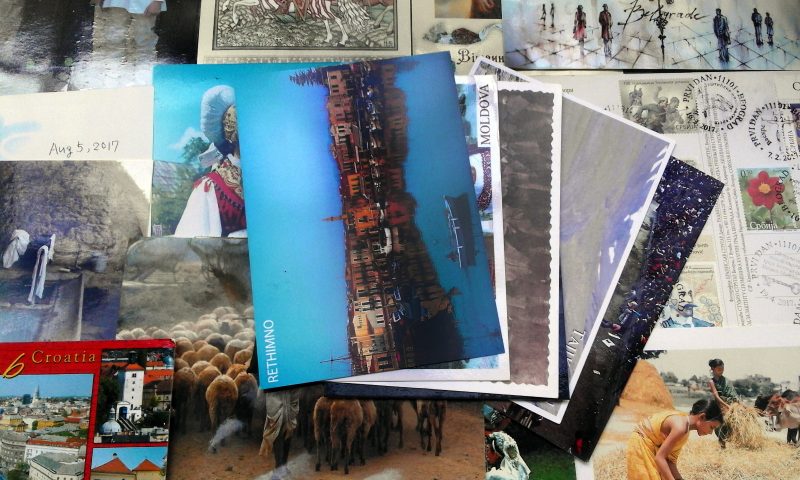
It can seem surprising but postcard collecting, or more serious sounding deltiology, is the third largest collecting hobby after philately and numismatics. As you can see, postcards are still quite popular.
Your postcards present people and places. Is that your collecting focus? Is there any particular type of postcards you collect?
J: I started my collection by taking all postcards that I could have found in my parents’ house, claiming them as my own, and putting them in a colourful box which I’d prepared especially for that purpose. That collection included many family-sent postcards and postcards depicting artistic paintings, which my mum loved to buy. Those postcards are still very special to me.
At the moment my collection of postcards contains a huge variety of themes. It also includes old postcards from the beginning of the 20th century, mainly from Serbia and Bosnia and Herzegovina, and those postcards I’m buying on the specialized websites or collectors’ fairs.
Are you a collector? Show your collection to the world!
I’m particularly interested in collecting old and new postcards with folklore motives because folklore is my other big avocation. I was a member of a local folklore dancing group when I was younger, so collecting folklore related postcards is just a way to enhance my interests in that field. People in their traditional clothes is definitely one of my favourite motives, which can be easily concluded from the postcards added to my Ownetic profile so far.
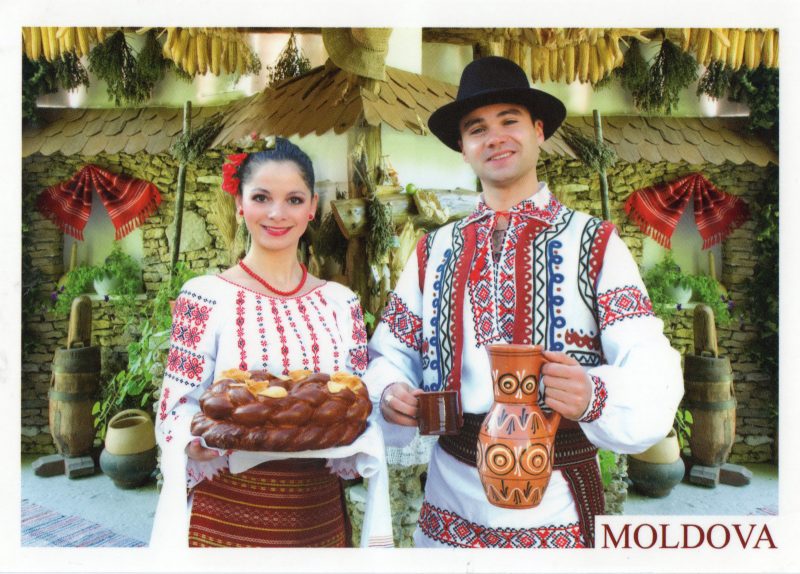
You’ve mentioned that you are passionate about Serbian folklore and postage history. It’s interesting how your postcards collecting relates to that. Can you tell us more about it?
J: As I’ve mentioned before, collecting postcards to me is not just about buying and storing postcards. I fell in love with this hobby primarily because of the possibility to actively take part in creating those items which I collect. Writing and sending a postcard to someone, adding some personal note and shaping the back of a card according to mine and the recipient’s likes is what makes this hobby appealing and different. Some collecting hobbies only include seeking, acquiring, organizing, cataloguing and maintaining items, while postcards offer a whole new possibility – you get a chance to create them. In my case, communication with people has always been the motive behind my collection. For me, a postcard becomes a real postcard only after it was written and sent.
All the postcards we see on Ownetic have some interesting facts in the description. You often mention who sent you some of them. For example, you share the story of Ahmed who sent you a postcard from Iraq with his hopes that his country will recover soon so people can visit it. Is this a part of your collecting passion — to get to know other people, cultures or even visit places the postcards present?
J: My favourite postcards are those sent to me personally by friends, family and other collectors. The joy of opening mailbox and finding a new card in it is what makes this hobby exciting after all these years. Everyone who has ever received a postcard knows that feeling and the joy that postcard can bring. Those cards are special because they were chosen for me and written for me. They contain a distinctive personal touch of the sender and therefore have emotional value. People who are sending me cards usually know me – they know my interests, that I love folklore, history and local customs, so they tend to send me postcards with such motives. I don’t insist on a specific motive though, I let the sender choose a card and surprise me. I know that from my sister’s trips I’m more likely to get a postcard of an exotic beach view than people in traditional costumes. I often associate places with people who send me postcards from there. Sending a card to someone and receiving a card creates a special bond between those people — it’s like receiving a gift. That’s why in my Ownetic collection ‘’Around the world’’ I always mention who sent me a card. Each postcard I’ve received illustrates a personal connection between the sender and myself.
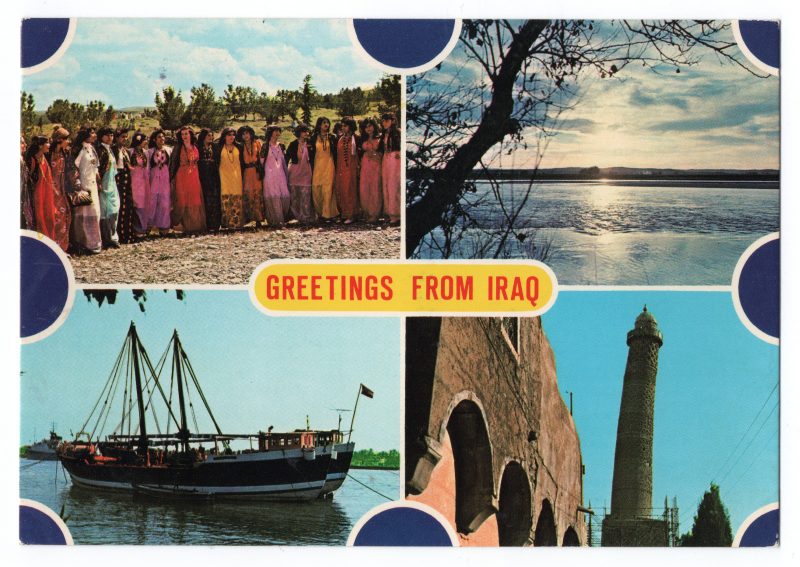
I believe there’s a community gathered around collecting postcards. How does it look like?
J: I divide postcard collecting community into people who are collecting old postcards and people who are collecting postcards sent to them personally. Most of the collectors, including myself, belong to both groups.
For people interested in collecting old postcards or a specific type of postcards there are different collector’s fairs, antique fairs, and societies of collectors. In Serbia, collecting postcards is usually closely related to philately, and most of the philatelic fairs and shops include deltiology as well. In Belgrade, almost every Saturday you can attend collectors fairs where you can find and buy a selection of old postcards.
For people interested in writing, sending, and receiving cards, the biggest global postcard community is Postcrossing. Postcrossing members are gathered around the official Postcrossing website: www.postcrossing.com. Registered Postcrossing members are allowed to use the site to send and receive postcards to each other and agree on direct postcard exchange. With postcrossing movement, postcard collecting became popular among younger people who primarily tend to use social networks for communication. Postcrossing connects those two worlds: communication through internet and postcards.
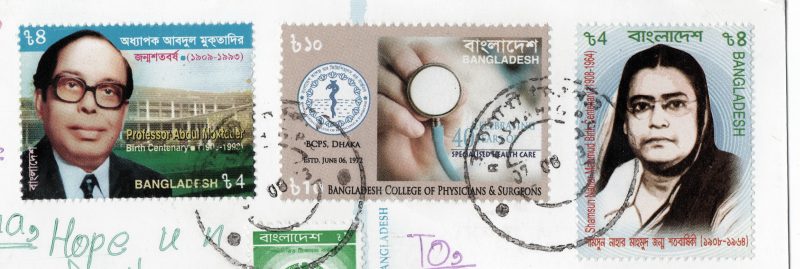
I believe that Ownetic can do the same: bring collections to the online world. I was looking forward to opening my collection of postcards and putting it online with the possibility to classify and organize items the same way they were stored in my albums.
Do you stay in touch with the people who send you the postcards? Has any of these interactions turned into a lasting friendship?
J: Many of the postcards I’ve received are from the people who usually don’t send postcards from their hometowns or trips, but they are my close friends or family so they make an exception when it comes to me. They usually get some basic guidelines on how to send a postcard, for example, I ask them not to put a postcard in an envelope. Majority of the postcards I’ve received, however, are sent to me by other collectors, either via arranged postcard swaps or the Postcrossing website. There are collectors around the world who I can call friends now and we have been in touch for many years. They are my pen pals and we are regularly in touch not only via postcards. This hobby enabled me to connect with people from all over the world. Postcrossing and postcard collectors communities are very inclusive and acceptive, you would see people of all ages taking part in it — from very young kids to older people.
Have you ever been to some of the places pictured on your postcards?
J: I have been to many places pictured on my postcards. Wherever I go, I buy postcards not only for others but also for myself, and I have to admit, I also send them to myself.
What are the main challenges for the postcards collectors?
J: It’s known that “The golden age of the postcard” was the beginning of the 20th century. From the 1900s until 1920s, at the end of the century, it became a graying activity. Postcard collecting is also inseparable from the traditional postal services. Today we witness that national postal services are being cancelled, for example, in many countries they don’t provide telegraphy services anymore, and you can’t send a telegram. Instead of the traditional post stamps, they use printed shipping labels. If you are sending a postcard to a foreign country, postage rates increase substantially. Many smaller post offices are closing so it’s much more difficult to send a postcard — if you’re abroad, it’s often a drag even getting a stamp for the card. However, thanks to online shopping, it became much easier to buy postcards. Specialised internet websites for collectors, eBay and other similar sites, make a quest for the collectibles easier.
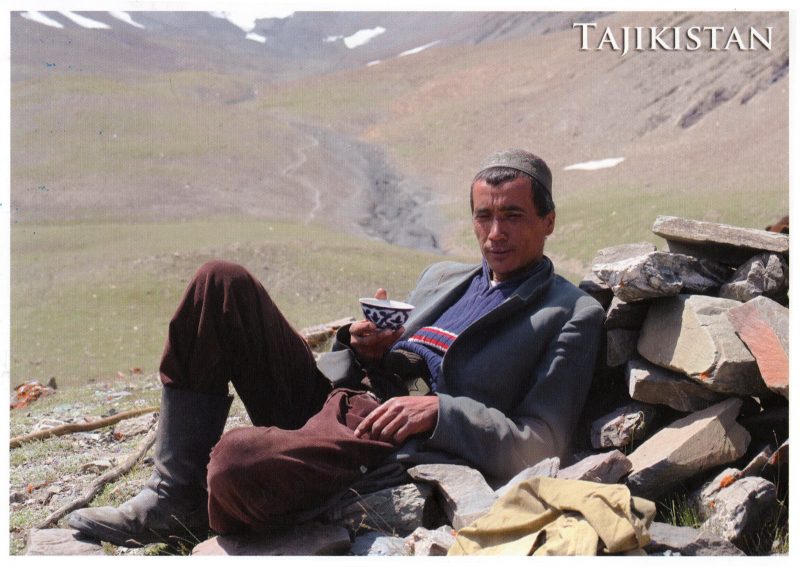
You would also think that sending messages electronically might completely sink postcards into oblivion in the 21st century, but social media, in my opinion, actually helped collectors to connect better and introduced postcards to a new generation, mainly through postcrossing. In recent years, postcrossing has become very popular in some countries, so even their national posts have released official postcrossing-themed stamps.
Have you settled some collecting goals?
J: I don’t have precisely defined goals and collecting ambitions — I collect postcards primarily because I enjoy the process of writing and receiving postcards. I don’t see this as something that should be completed. For me, this hobby is a delightful activity of communicating with other people.
What will we see next on Ownetic?
J: I’m planning to add to my Ownetic profile a collection of ‘’Union postale universelle postcards of world coins’’, which I’ve been actively collecting for the past few years. I could say that my collecting is extended in two different directions: one is collecting old postcards from the already mentioned ‘’Union postale universelle numismatic postcards’’, old postcards from Serbia and Bosnia and Herzegovina mostly showing local people, and the second direction is more personal and currently more represented on my Ownetic profile — those are the postcards sent to me personally.
Last question. Do you have any advice on how to begin collecting postcards?
J: If you enjoy writing and receiving postcards or just collecting them, it’s easy to start. You can join many Facebook pages and meet other collectors, or register on Postcrossing.com. On eBay, you can find many offers for postcards and start your collection by buying the ones you like. Maybe the best way to start and introduce yourself to the hobby is to go to your local post office and search what kind of postcards and post stamps are there. Find out if your town or city has a local collecting community and join them — they are usually organizing weekly or monthly meetings and sales exhibitions. That’s a wonderful opportunity to meet other collectors from your region.
Thank you, Jovana, for the interview.
J: Thank you for this opportunity to share my story.



